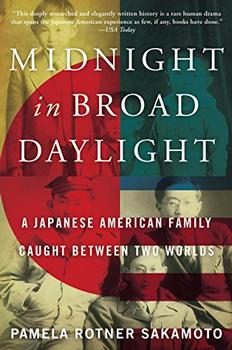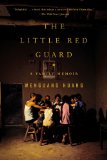Summary | Excerpt | Reviews | Beyond the book | Read-Alikes | Genres & Themes | Author Bio

A Life in Three Wars
by Andrew X. PhamA son’s searing memoir of his Vietnamese father’s experiences over the course of three wars.
Once wealthy landowners, Thong Van Pham’s family was shattered by the tumultuous events of the twentieth century: the festering French occupation of Indochina, the Japanese invasion during World War II, and the Vietnam War.
Told in dazzling chapters that alternate between events in the past and those closer to the present, The Eaves of Heaven brilliantly re-creates the trials of everyday life in Vietnam as endured by one man, from the fall of Hanoi and the collapse of French colonialism to the frenzied evacuation of Saigon. Pham offers a rare portal into a lost world as he chronicles Thong Van Pham’s heartbreaks, triumphs, and bizarre reversals of fortune, whether as a South Vietnamese soldier pinned down by enemy fire, a prisoner of the North Vietnamese under brutal interrogation, or a refugee desperately trying to escape Vietnam after the last American helicopter has abandoned Saigon. This is the story of a man caught in the maelstrom of twentieth-century politics, a gripping memoir told with the urgency of a wartime dispatch by a writer of surpassing talent.
The author's approach can cause the reader a certain amount of confusion at first, as the narrative bounces back and forth between decades, making it difficult to follow. Additionally, the reader expects a book in biographical format, and at first he or she may interpret the "I" of the story as being Andrew X. Pham and the "father" as Thong. The author's notes make it clear in hindsight that Thong is the narrator, not the author, but this may not sink in for the reader for the first thirty pages or so .....
Andrew Pham's writing throughout The Eaves of Heaven is crisp and straight-forward. His descriptions are detailed, yet minimal, providing an excellent sense of time and place without embellishment. The story never bogs down or becomes dull. Readers may, in fact, find themselves wishing for more after turning the final page. This book's fast pace and involving story is likely to appeal to a wide range of readers well beyond the genre boundaries of history and biography aficionados...continued
Full Review
 (575 words)
(575 words)
(Reviewed by Kim Kovacs).
Vietnam's history has been one of repeated invasions and resistance (map of Vietnam today). For most of the first millennium AD, Vietnam was controlled by the Chinese. A final rebellion in 938 led to Vietnam achieving independence until the mid 19th century when increasing parts of the country were defeated by the French. The entire area of Vietnam, Laos and Cambodia were declared "French Indochina" in 1887.
The turn of the 20th century brought calls for independence from the citizens of Vietnam. In 1919, during the Versailles Peace Conference at the end of WWI,Ho Chi Minh submitted Vietnamese demands to the French, which the French completely ignored. This sparked the rise of grass-roots Vietnamese nationalist and communist ...

If you liked The Eaves of Heaven, try these:

by Pamela Rotner Sakamoto
Published 2017
Alternating between American and Japanese perspectives, Midnight in Broad Daylight provides a fresh look at the dropping of the first atomic bomb.

by Wenguang Huang
Published 2013
Three generations of a family living under one roof reflect the dramatic transformations of an entire society in this memoir of life in 20th century China.
When all think alike, no one thinks very much
Click Here to find out who said this, as well as discovering other famous literary quotes!